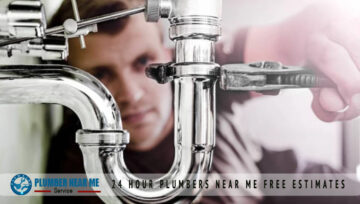Why do my kitchen pipes keep clogging? 4 Ways, If your kitchen sink is constantly clogged even after you sink it or spin it like a snake, there’s probably something in the pipes underneath. Unfortunately, many of the materials that homeowners flush down kitchen drains can build up on pipe walls over time until they form stubborn, widespread clogs.
Obviously, the first thing to do is stop making these blockages worse! To do this, you will need to figure out what you are washing and how to deal with it differently. Let’s talk about hundreds of experiences as plumber near me service. Here are four main reasons why your kitchen sink keeps clogged and is a problem in the first place:
Cooking oil pouring into a plastic container
Lubricants, Oils and Grease. These are the three most notorious kitchen sink clogs on the market. Why do my kitchen pipes keep clogging? Unfortunately, they are also the most common. The problem is that all of these substances are perfectly suited for clogging drains. First, adhesives. FOG is rarely completely wasted; instead, they tend to stick to the sides of your channels halfway through. Worse still, they harden when they stick to the sides of your pipes.
FOG solidifies and hardens as it cools. Hard FOG can restrict or even completely block water flow. Immersion can clear the worst of a FOG clog, but it usually can’t spray debris from pipe walls. The next time you flush a little more FOG, it will stick to the remaining sediment and form the clog again. Avoiding these blockages is simple: Never pour fats, oils or greases into your kitchen drain again!
Don’t Spill Coffee
That’s another bummer: coffee grounds are terrible for kitchen sinks. Even if you have a garbage disposal, you shouldn’t empty your trash into your sink or even let them accidentally empty it. Once in your pipes, coffee grounds can build up over time, leading to particularly stubborn and pervasive clogging issues – especially if they catch other particles as they go down. The problem with coffee grounds is what happens when they get wet.
Think about what happens when you pour water over the grounds while you’re making your coffee. They absorb water, clump together and become sticky. That’s exactly what they do with your pipes as well. Like FOG, coffee grounds can stick to the sides of your pipes and solidify, forming the basis for future blockages. Worse still, they tend to trap other materials passing through your pipes, constantly triggering sudden, annoying little clogs.
Food scraps (even if you have a garbage disposal)
Many homeowners assume that if you have a garbage disposal, it’s fair game to throw any food in it. We get it, but unfortunately that’s not the case. Garbage disposal is for fruit and vegetable and vegetable scraps, small bones, ice and cooked meat. There are many foods that can cause a blockage, even if you use a garbage disposal on them.
In particular, never throw away potatoes, rice or beans. These foods swell when exposed to water. Once at your command, they become a kind of paste that can (you guessed it) stick to the edges of your pipe walls. Neither do egg shells, large bones, raw meat and shells; These not only cause blockages, but also damage your waste on the way down.
P-trap under the sink
The P-trap is the curved pipe just below your sink that connects the drain to your other sediment pipes. It is called a “p-trap” or sometimes “s-pipe” because of its distinctive “p” or “s-shaped” curve. The P-trap is bent to trap some water to keep sewer gases from going up your drain. Unfortunately, it sometimes becomes an obstacle that some objects cannot pass through.
If your kitchen sink keeps clogged or is draining very slowly, something may be stuck in your p-trap. Put on gloves, grab a bucket and carefully remove the p-trap. Most p-traps have fasteners that can be loosened by hand twisting, but you may need a wrench. Expect some dirty water to spill out when you turn it. Check the inside of the p-trap for objects or debris and then clean it thoroughly.
These are the most common causes of your kitchen sink constantly clogged, but they are by no means the only possibilities. Unfortunately, your kitchen sink – even your pipes in general – can have all sorts of issues that can lead to constant clogs.
Fortunately, you have options regardless of these issues. If you are unable to isolate and fix your clogging problem, you can always call the experts at Ben Franklin Plumbing. We’ll figure out what happened to your kitchen sink and fix it in time – after all, that’s what it’s called.




Write a Comment